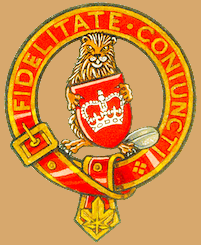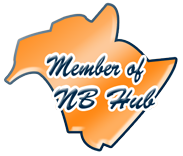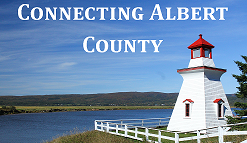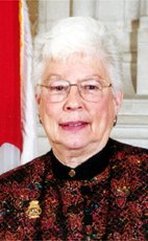I remember I was taking the Alberta Legislature guided tour for the third time when I first got interested in the Monarchy and its effects and influences on Canadian politics. I stood beside the fountain of the rotunda looking at all the old flags mounted on the marble walls. Our tour guide talked about the massive paintings of our current and past monarchs through the centuries and how they helped carve the identity and image of the culture and traditions of Canadians today. I then realized there was a missing jewel in Canadian politics that I’d completely overlooked. Today, I would like to boast about how my province was named after a member of the Canadian Royal Family.
|
By: Mr. Windsor I remember I was taking the Alberta Legislature guided tour for the third time when I first got interested in the Monarchy and its effects and influences on Canadian politics. I stood beside the fountain of the rotunda looking at all the old flags mounted on the marble walls. Our tour guide talked about the massive paintings of our current and past monarchs through the centuries and how they helped carve the identity and image of the culture and traditions of Canadians today. I then realized there was a missing jewel in Canadian politics that I’d completely overlooked. Today, I would like to boast about how my province was named after a member of the Canadian Royal Family. Princess Louise was the Duchess of Argyll and the fourth daughter of Queen Victoria and Prince Albert. She was born on March 18th 1848 at Buckingham palace as Princess Louise Caroline Alberta. She would later marry John Campbell the Marquess of Lorne on March 21st 1871. The Marquess of Lorne would later become Canada’s fourth Governor General and the couple would both take a great interest in Canada. They hosted countless balls, dinners, ice skating parties and even tobogganing parties while helping encourage the arts and sciences in Canada. Louise became a patroness for various organizations including the Ladies Educational Association, Women’s Protective Immigration Society, and the Society of Decorative Arts showing how she was a strong supporter of the feminist movement. In the winter of 1880 Louise and Lorne were victims of a sleigh accident. The carriage they were riding in was overturned and both coachmen fell off. The horses then panicked and dragged the overturned cart 370 meters until they calmed down from another carriage ahead. Princess Louise was knocked unconscious and her earring got caught on the carriage walls cutting her ear lobe in half. However, the accident didn't stop the couple from being active in Canadian politics and activities. In 1881 the couple visited the North-West Territories and two years later the territory was split into four districts Assiniboia, Athabasca, Saskatchewan and Alberta. The district of Alberta was named by the Marquess of Lorne in a famous poem he wrote which compared the beauty of the district to the beauty of his wife. In 1905, Alberta would become a province. Princess Louise died on December 3rd 1939 in Kensington Palace, London. Today, countless locations and organizations have been named after the couple. Alberta’s famous Lake Louise, The Argyll and Sutherland Highlanders of Canada (Also known as Princess Louise's), 8th Canadian Hussars (Princess Louise's), The Princess Louise Fusiliers, and Mount Alberta all have been named honouring Princess Louise.
In December 2009, Prime Minister Stephen Harper—attempting to postpone a confidence vote in the House of Commons—formally requested that the Governor General prorogue Parliament. After much speculation in the media as to what the GG would decide to do, Michaëlle Jean granted the PM’s request for prorogation. It has come to light however, that—had the GG refused the prorogation request—Stephen Harper was ready to appeal directly to the Queen. In a Globe and Mail article from 2010, Harper’s then-director of communications is quoted discussing this possibility: “When… asked what other avenues the Prime Minister was exploring in case the decision had gone against them, he responded: ‘Well, among them, the Queen’” (Ibbitson, 2010). As it happened, such an outcome was averted when the GG granted the prorogation request; nevertheless, the possibility of the Queen becoming directly involved in Canadian politics had been raised, leading to some interesting constitutional questions. This paper will attempt to shed some light on one of these uncertainties in particular: whether or not it is constitutional for the PM to appeal an unfavourable vice-regal decision to the Queen. There are those who seem to argue—constitutional scholars and former-GGs among them—that the Queen no longer has the constitutional authority to override a vice-regal decision, asserting that any powers that the monarch might have previously held (apart from appointing the GG) have been either transferred to the GG via the Letters Patent of 1947, or subsequently lost through a convention of disuse. This paper will argue however, that the Letters Patent do not so much transfer, as they do authorize the GG to exercise the Queen’s powers—powers which the Queen still possesses regardless of a tradition of disuse. This argument is supported by several modern instances in which the Queen has used some of her long-dormant, or never used, powers in the Canadian context (i.e. the opening of Parliament in 1957 & 1977; the appointment of additional senators in 1990; the signing of the Constitution Act, 1982; and, the approval of the Queen Elizabeth II Diamond Jubilee Medal in 2011). Consequently, this paper concludes that—while it would certainly create new constitutional precedent—it would be constitutionally legitimate for the PM to appeal an unfavourable vice-regal decision directly to the Queen. Published in the Journal of Canadian Studies, Bruce Hicks writes that “[constitutional] scholars spend a great deal of time hypothesizing democratic justification for powers that they themselves argue have fallen into disuse” (2010). As a result of a tradition of disuse and encouraged by the Letters Patent of 1947, it has been argued that the Queen has ceded most of her powers to the GG. In her autobiography,former-GG Adrienne Clarkson makes the claim that “[even] many politicians don’t seem to know that the final authority of the state was transferred from the monarch to the Governor General in the Letters Patent of 1947” (2006, 189-90). This claim suggests that it would be unconstitutional for the Queen to override a vice-regal decision, and appears to be supported by Andrew Heard—a prominent constitutional scholar. In his book on constitutional conventions Heard claims that, “[although] the Queen remains Canada’s legal head of state, the only area on which she plays any ongoing role lies in the appointment of the Governor General” (1991, 16). Here, Heard seems to be suggesting that a constitutional convention of disuse has arisen around the use of the Queen’s powers—a position which falls in line with Clarkson’s own interpretation. While coming from a former-GG, Clarkson’s interpretation of the Letters Patent is itself questionable for one important reason: nowhere in the document does is say that the powers of the Crown have been transferred to the GG; what it actually says is this: “And We do hereby authorize and empower Our Governor General, with the advice of Our Privy Council for Canada or of any members thereof or individually, as the case requires, to exercise all powers and authorities lawfully belonging to Us in respect of Canada”; and referring specifically to the case of prorogation: “And We do further authorize and empower Our Governor General to exercise all powers lawfully belonging to Us in respect of summoning, proroguing or dissolving the Parliament of Canada.” It would seem that the GG is simply authorised to exercise most of the Queen’s constitutional powers. In other words, the Letters Patent do not transfer the Crown’s power to the GG, it just permits the GG to exercise them in the Queen’s name. For this reason, I find it hard to believe that the Letters Patent prevent the Queen from overturning a decision by the GG—especially if it comes at the request of Her PM. Similarly, the argument that the Queen’s powers have been lost through a tradition of disuse is debatable. Bruce Hicks gives one example in which the celebrated constitutional expert Eugene Forsey mistakenly comes to the conclusion that “a convention had emerged preventing the use of… the clause [in the Constitution Act, 1867] that allows the Queen to authorize the appointment of additional senators to break a deadlock between the two chambers of the Canadian Parliament” (2010). This however turned out not to be the case, when in 1990 Brian Mulroney used this very provision to appoint 8 new senators in order to ensure the passage of his GST bill in the Senate (Plett: 2009). There have also been several other modern instances in which the Queen has carried out some of her rarely used powers in the Canadian context: In 1957 & 1977 the Queen officially opened Parliament, becoming the first reigning Canadian monarch to read the Speech from the Throne (The Royal Houshold: 2013); in 1982, the Queen proclaimed the newly-patriated Constitution (Historica); and more recently, the Queen has approved the creation of new honours for her Diamond Jubilee (The Governor General of Canada: 2011). While many of these duties are rarely used, or have traditionally been exercised by the GG, this has clearly not prevented the Queen from their performance. When combined with the actual text of the Letters Patent, what these examples suggest is that—regardless of a tradition of disuse or performance by the GG—the Queen is still in possession of her constitutional powers and may use them upon the advice of her Canadian PM. Consequently—while the decision to overturn an unfavourable vice-regal decision would certainly shake up our constitutional system—it seems perfectly reasonable to assume that the PM has the constitutional right to appeal an unfavourable vice-regal decision directly to the Queen. What the Queen would do in such a situation however, is another matter entirely… Bibliography
Clarkson, Adrienne. Heart Matters. Toronto: Viking Canada (AHC). 2006. Print. “Creation of the Diamond Jubilee Medal.” The Governor General of Canada. 2011. Web. 4 Mar. 2011. Heard, Andrew. Canadian Constitutional Conventions: The Marriage of Law and Politics. Toronto: Oxford University Press, 1991. Print. Hicks, Bruce M. “The Crown’s ‘Democratic’ Reserve Powers.” Journal of Canadian Studies. 2010. Web. 26 May. 2013. Ibbitson, John. “Stephen Harper pondered appeal to Queen over prorogation.” The Globe and Mail. 30 Sept. 2010. Web. 26 May. 2013. Letters Patent Constituting the Office of the Governor General of Canada. 1947. Web. 26 May, 2013. Plett, Donald N. “About the Senate – Senators”. Donald Neil Plett. 2009. Web. 26 May, 2013. “The Patriation of the Constitution.” Historica. Web. 27 May, 2013. The Royal Household. “Queen in Canada.” The Official Website of th British Monarchy. 2013. Web. 26 May, 2013. I recently took a look at openparliament.ca and I have to say it is an amazing resource for finding out what MPs think about on any given subject. Check it out if you have the chance. This batch of quotes starts off with statements made by Jack Layton of the New Democrats (as a side note: Have Canadians settled on 'Dipper' as the nickname for NDP supporters?). 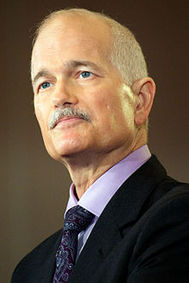 "Some people think the NDP may want to get rid of the monarchy but I can assure you that that's absolutely not the case. My Dad was a big time monarchist and so am I." "Well, I think the idea of having a constitutional monarchy rather than a republic has worked pretty well for Canada. I do believe that Canadians struggle, as the years go by, with the issue of relevancy. On the other hand I think we've had Governor-Generals and certainly our current Governor-General would be a good example, of someone representing the Crown- I don't mean an individual but the phenomenon, the concept of our collective statehood- in kind of an interesting way. I don't hear from Canadians the sound of a stampede to make a change. It comes up from time to time. I feel that we've got precious amount of debate time and work time in parliament and there are a lot of issues that come before reform to the constitutional monarchy." ~Jack Layton, Leader of Her Majesty's Loyal Opposition 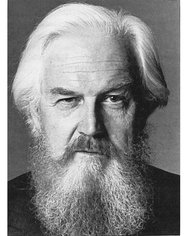 "In a government like ours, the Crown is the abiding and unshakable element in government; politicians may come and go, but the Crown remains and certain aspects of our system pertain to it which are not dependent on any political party. In this sense, the Crown is the consecrated spirit of Canada." ~Robertson Davies, novelist, playwright, and professor 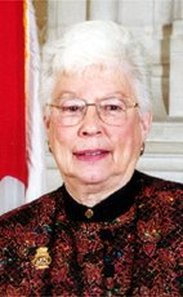 "By my count, the Deputy Prime Minister has sworn an oath of loyalty and service to Her Majesty no fewer than four times in the last two years, yet he has used his position as a minister of the Crown as a podium from which to rail against our history and our heritage. The minister says that instead of the monarchy he would prefer an entirely Canadian institution, but he fails to recognize that the monarchy is as Canadian as the House of Commons itself." ~Elsie Wayne, politician, and businesswomen Loyally Yours,
A Kisaragi Colour 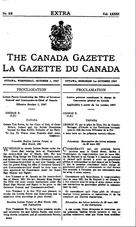 First page of the letters patent, 1947 First page of the letters patent, 1947 The Letters Patent of 1947 are a rather misunderstood document. Many, including at least one Governor General, have misinterpreted them to be a transfer of power from the Sovereign. This is not the case. To understand the document you need to understand its historical context. During World War Two Nazi Germany invaded Denmark. This put Iceland in a precarious position as they shared a monarch with the Danes. For obvious reasons the Danish monarch could not continue to fulfill his duties as sovereign of Iceland. Iceland's parliament was forced to pass an illegal declaration of independence (as it did not have royal assent). This caused debate in the Canadian House of Commons about Canada's lack of a regency act in the event the king was captured or cut off from Canada. In 1947 the Letters Patent Constituting the Office of Governor General of Canada were issued. The issuance of these letters patent is also why Canada does not have a regency act. The letters patent were significant, however. They allow the Governor General to exercise nearly all of the sovereign's prerogatives except, obviously, the ability to appoint a new Governor General. They notably do not prevent the sovereign from exercising those same prerogatives. As Kevin Gillespie over at Until Philosophers are Kings… point out there have been several instances since then when the sovereign has used their prerogatives instead of the Governor General. As a creation of the monarch's royal perogative they cannot be repealed by the Canadian Parliament. By the same token they are not sufficient to fundamentally alter the office of the Governor General. It is clear from government correspondence from the time period that no one then thought of the letters patent as a transfer of power. However, since then either intentionally or unintentionally some have come to see them that way. The Letters Patent of 1947 were a response to the nightmare scenario of their times; a full scale Nazi invasion of Britain. Loyally Yours, A Kisaragi Colour Full Text of the The Letters Patent, 1947Letters Patent Constituting the Office of Governor General of Canada
Effective October 1, 1947 "GEORGE R." CANADA George the Sixth, by the Grace of God, of Great Britain, Ireland and the British Dominions beyond the Seas King, Defender of the Faith. [SEAL] To All To Whom these Presents shall come, GREETING: Whereas by certain Letters Patent under the Great Seal bearing date at Westminster the Twenty-third day of March, 1931, His late Majesty King George the Fifth did constitute, order, and declare that there should be a Governor General and Commander-in-Chief in and over Canada, and that the person filling the office of Governor General and Commander-in-Chief should be from time to time appointed by Commission under the Royal Sign Manual and Signet: And whereas at St. James' on the Twenty-third day of March, 1931, His late Majesty King George the Fifth did cause certain Instructions under the Royal Sign Manual and Signet to be given to the Governor General and Commander-in-Chief: And whereas it is Our Will and pleasure to revoke the Letters Patent and Instructions and to substitute other provisions in place thereof: Now therefore We do by these presents revoke and determine the said Letters Patent, and everything therein contained, and all amendments thereto, and the said Instructions, but without prejudice to anything lawfully done there under: And We do declare Our Will and pleasure as follows: I. We do hereby constitute, order, and declare that there shall be a Governor General and Commander-in-Chief in and over Canada, and appointments to the Office of Governor General and Commander-in-Chief in and over Canada shall be made by Commission under Our Great Seal of Canada. II. And We do hereby authorize and empower Our Governor General, with the advice of Our Privy Council for Canada or of any members thereof or individually, as the case requires, to exercise all powers and authorities lawfully belonging to Us in respect of Canada, and for greater certainty but not so as to restrict the generality of the foregoing to do and execute, in the manner aforesaid, all things that may belong to his office and to the trust We have reposed in him according to the several powers and authorities granted or appointed him by virtue of the Constitution Acts, 1867 to 1940 and the powers and authorities hereinafter conferred in these Letters Patent and in such Commission as may be issued to him under Our Great Seal of Canada and under such laws as are or may hereinafter be in force in Canada. III. And We do hereby authorize and empower Our Governor General to keep and use Our Great Seal of Canada for sealing all things whatsoever that may be passed under Our Great Seal of Canada. IV. And We do further authorize and empower Our Governor General to constitute and appoint, in Our name and on Our behalf, all such Judges, Commissioners, Justices of the Peace, and other necessary Officers (including diplomatic and consular officers) and Ministers of Canada, as may be lawfully constituted or appointed by Us. V. And We do further authorize and empower Our Governor General, so far as We lawfully may, upon sufficient cause to him appearing, to remove from his office, or to suspend from the exercise of the same, any person exercising any office within Canada, under or by virtue of any Commission or Warrant granted, or which may be granted, by Us in Our name or under Our authority. VI. And We do further authorize and empower Our Governor General to exercise all powers lawfully belonging to Us in respect of summoning, proroguing or dissolving the Parliament of Canada. VII. And Whereas by the Constitution Acts, 1867 to 1940, it is amongst other things enacted that it shall be lawful for Us, if We think fit, to authorize Our Governor General to appoint any person or persons, jointly or severally, to be his Deputy or Deputies within any part or parts of Canada, and in that capacity to exercise, during the pleasure of Our Governor General, such of the powers, authorities, and functions of Our Governor General as he may deem it necessary or expedient to assign to such Deputy or Deputies, subject to any limitations or directions from time to time expressed or given by Us; Now We do hereby authorize and empower Our Governor General, subject to such limitations or directions, to appoint any person or persons, jointly or severally, to be his Deputy or Deputies within any part or parts of Canada, and in that capacity to exercise, during the pleasure of Our Governor General, such of the powers, authorities, and functions of Our Governor General as he may deem it necessary or expedient to assign to him or them: Provided always, that the appointment of such a Deputy or Deputies shall not affect the exercise of any such power, authority or function by Our Governor General. VIII. And We do hereby declare Our pleasure to be that, in the event of the death, incapacity, removal, or absence of Our Governor General out of Canada, all and every the powers and authorities herein granted to him shall, until Our further pleasure is signified therein, be vested in Our Chief Justice for the time being of Canada, (hereinafter called Our Chief Justice) or, in the case of the death, incapacity, removal, or absence of Our Chief Justice, then in the Senior Judge for the time being of the Supreme Court of Canada, then residing in Canada and not being under incapacity; such Chief Justice or Senior Judge of the Supreme Court of Canada, while the said powers and authorities are vested in him, to be known as Our Administrator. Provided always, that the said Senior Judge shall act in the administration of the Government only if and when Our Chief Justice shall not be present within Canada and capable of administering the Government. Provided further that no such powers or authorities shall vest in such Chief Justice, or other judge of the Supreme Court of Canada, until he shall have taken the Oaths appointed to be taken by Our Governor General. Provided further that whenever and so often as Our Governor General shall be temporarily absent from Canada, with Our permission, for a period not exceeding one month, then and in every such case Our Governor General may continue to exercise all and every the powers vested in him as fully as if he were residing within Canada, including the power to appoint a Deputy or Deputies as provided in the Seventh Clause of these Our Letters Patent. IX. And We do hereby require and command all Our Officers and Ministers, Civil and Military, and all the other inhabitants of Canada, to be obedient, aiding, and assisting unto Our Governor General, or, in the event of his death, incapacity, or absence, to such person as may, from time to time, under the provisions of these Our Letters Patent administer the Government of Canada. X. And We hereby declare Our Pleasure to be that Our Governor General for the time being shall, with all due solemnity, cause Our Commission under Our Great Seal of Canada, appointing Our Governor General for the time being, to be read and published in the presence of Our Chief Justice, or other Judge of the Supreme Court of Canada, and of members of Our Privy Council for Canada, and that Our Governor General shall take the Oath of Allegiance in the form following:-"I, ................. do swear that I will be faithful and bear true allegiance to His Majesty King George the Sixth, His Heirs and successors, according to law. So Help me God"; and likewise he shall take the usual Oath for the due execution of the Office of Our Governor General and Commander-in-Chief in and over Canada, and for the due impartial administration of justice; which Oaths Our Chief Justice, or, in his absence, or in the event of his being otherwise incapacitated, any Judge of the Supreme Court of Canada shall, and he is hereby required to, tender and administer unto him. XI. And We do authorize and require Our Governor General from time to time, by himself or any other person to be authorized by him in that behalf, to administer to all and to every person or persons, as he shall think fit, who shall hold any office or place of trust or profit in Canada, that said Oath of Allegiance, together with such other Oath or Oaths as may be from time to time be prescribed by any Laws or Statutes in that behalf made and provided. XII. And do further authorize and empower Our Governor General, as he shall see occasion, in Our name and on Our behalf, when any crime or offence against the laws of Canada has been committed for which the offender may be tried there under, to grant a pardon to any accomplice, in such crime or offence, who shall give such information as shall lead to the conviction of the principal offender, or of any one of such offenders if more than one; and further to grant to any offender convicted of any such crime or offence in any Court, or before any Judge, Justice, or Magistrate, administering the laws of Canada, a pardon, either free or subject to lawful conditions, or any respite of the execution of the sentence of any such offender, for such a period as to Our Governor General may seem fit, and to remit any fines, penalties, or forfeitures, which may become due and payable to Us. And We do hereby direct and enjoin that Our Governor General shall not pardon or reprieve any such offender without first receiving in capital cases the advice of Our Privy Council for Canada and. in other cases, the advice of one, at least, of his Ministers. XIII. And We do further authorize and empower Our Governor General to issue Exequaturs, in Our name and on Our behalf, to Consular Officers of foreign countries to whom Commissions of Appointment have been issued by the Heads of States of such countries. XIV. And whereas great prejudice may happen to Our service and to the security of Canada by the absence of Our Governor General, he shall not quit Canada without having first obtained leave from Us for so doing through the Prime Minister of Canada. XV. And We do hereby reserve to Ourselves, Our heirs and successors, full power and authority from time to time to revoke, alter, or amend these Our Letters Patent as to Us or them shall seem fit. XVI. And We do further direct and enjoin that these Our Letters Patent shall be read and proclaimed at such place or places within Canada as Our Governor General shall think fit. XVII. And We do further declare that these Our Letters Patent shall take effect on the first day of October, 1947. In witness whereof We have caused these Our Letters to made Patent, and for the greater testimony and validity thereof, We have caused Our Great Seal of Canada to be affixed to these presents, which We have signed with Our Royal Hand. Given the eighth day of September in the Year of Our Lord One Thousand Nine Hundred and Forty-Seven and in the Eleventh Year of Our Reign. BY HIS MAJESTY'S COMMAND, W. L. MACKENZIE KING, Prime Minister of Canada 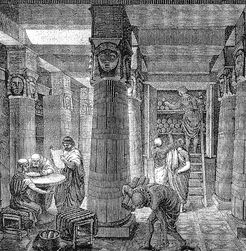 In my continuing study of monarchy I've started testing the sources I have in actual debate with republicans. The reason for this is two-fold: -I want to see if republicans have academic research to counter what I have so far. -I want to see how well the studies I've found so far stand up to scrutiny. So far republicans have either been unwilling or unable to put up counter research. Putting republicans in the position of having only emotional arguments to fall back on has been rather satisfying. The result of which is why the second objective is important: if you have no evidence of your own your only hope is to attack what evidence there is (ie. mine). The main attack has been that 'correlation does not imply causation'. True enough. For statistical studies this is taken into account by trying to isolate different variables to see which are significant. This charge led me to go over some of the studies I already have. The 2008 study by Christian Bjørnskov & Peter Kurrild‐Klitgaard, Economic Growth & Institutional Reform in Monarchies & Republics, was subjected to this attack. I decided to contact the authors to see what they had to say about this charge (and to see if they knew of any other academic studies):  Prof. Bjørnskov, Aarhus University Prof. Bjørnskov, Aarhus University Christian Bjørnskov: "About your questions, I haven't seen any other studies. But I will be pursuing this topic further in a project with my coauthor Peter Kurrild-Klitgaard and Martin Rode from the University of Navarre. On the second question, we got that from the reviewers. That's the reason we're doing the IV estimates in the paper that - so far as is possible - deal with the causality issue. Besides, if we had claimed that monarchies create growth, it would be a plausible argument that growth just allowed monarchy to survive. But since we claim that monarchy only affects growth around major institutional changes, I think it's much more difficult to claim the reverse causality. Anyway, we did what we could to make sure that our estimates are not biased." 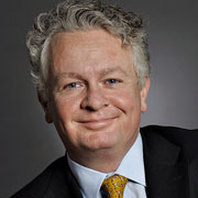 Prof. Kurrild‐Klitgaard Prof. Kurrild‐Klitgaard Peter Kurrild‐Klitgaard: "1) We have not done much more work on the topic, but the paper was recently published in JITE and there may be changes therein relative to the working paper version you have seen: Link 2) I understand your point but I am not sure I understand why it should be a particular problem here rather than in other regression studies (and this is in fact a panel study with a large number of observations). As you can see we have controlled for a very wide variety of other factors (including a very large number of controls suggested by various reviewers), and the results have remained robust. We may still need to fully understand the precise 'link' but I have no doubt that there is a connection." The second study that was attacked was the 2006 study by Christian Bjørnskov, Determinants of generalized trust: A cross-country comparison. For this charge I started looking up studies on trust that were larger, more recent, and by different researchers. The first one I found was a 2012 study called, A Blessing and a Curse? Political Institutions in the Growth and Decay of Generalized Trust: A Cross-National Panel Analysis, 1980–2009 by Blaine G. Robbins. This study has "unbalanced panel data are for 6 time periods with a total of 74 countries and 248 observations". Unlike the previous study this one focuses more on trust over time and shows that while the trust levels in monarchies are rising or stable, other observed groups differed. Most importantly it confirmed the previous work as not being a fluke. The second study I found was a 2013 study called Trust, Welfare States and Income Equality: What Causes What? by Andreas Bergh and... Christian Bjørnskov (the study of trust being the good professor's primary field). Their study had a "dataset with full information on all main variables includes 104 countries, spanning the globe and all levels of economic and political development". This study also confirmed the conclusions of the previous studies. The study notes that it covers approximately 15 more least developed countries than previous studies and that the results were remarkably similar. This study is also useful for another reason. Its main goal was to see whether welfare states raised trust levels or whether increased trust created welfare states. They found that while high trust levels in a population allowed welfare states to be successfully created, welfare states themselves don't raise trust. So in the event someone says European monarchies have higher trust levels because they have stronger welfare systems you can point to this study to demonstrate the opposite. There is in fact a few more studies related to this topic that I have, as of yet, been unable to get access to but I'll keep trying. As Christian Bjørnskov noted in his response; he and coauthor Peter Kurrild-Klitgaard will be continuing their research on monarchy with Martin Rode from the University of Navarre. I eagerly await the study's publication.
As always, the new studies have been added to Useful Links. Loyally Yours, A Kisaragi Colour |
AboutThis website is intended to be a resource for those arguing in favour of Canada's monarchy, researching Canada's royal past, or wondering what the various vice-regal representatives of the Canadian Crown are up to currently. As well, articles about other monarchies may appear from time to time. Archives
June 2024
Categories
All
|
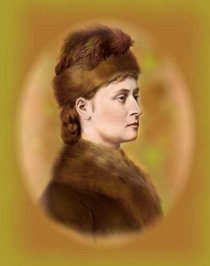
 RSS Feed
RSS Feed
